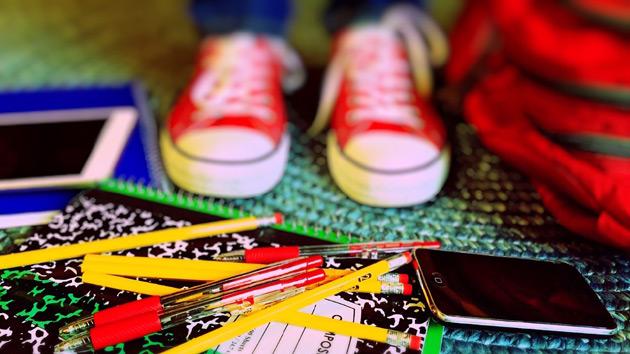Some Czech schools report inclusion already happening, Romani pupils achieving average results

Primary school administrators in the Semilsko and Trutnov districts have told the Czech media that they are not having any problems with the Romani pupils attending their schools. The principals say Romani children are achieving average results, both in their behavior and in their studies.
The fact that the inclusion of Romani pupils in education can work without difficulty has been confirmed to news server Deník.cz by the principals of several primary schools. One is the principal of the Strž Dvůr Králové nad Labem Primary School, Šárka Šantrochová, who described the situation as follows: "We just have the classic school anxieties that affect any school. The Romani children are generally, as far as their grades go, average. They are not failing and they are also not greatly excelling. At our school about 5 % of the pupils are Romani."
Ivo Filip, principal of the Žižkov Primary School in Turnov and Jaromír Frič, principal of the 28. října Primary School in Turnov, expressed similar opinions to the news server. Petr Kalousek, principal of the Úpice-Lány Primary School, had the following to say about the issue: "We take Romani pupils as normal schoolchildren, we cannot draw any distinctions between them and the others and we don’t even want to, as some in Brussels might believe. Our school is attended by 27 pupils of Romani origin out of a total of 280, so roughly 10 %. We have registered problems with Romani parents when it comes to paying for things, when we collect financing from the parents to cover theater tickets, etc. In such cases 80 % of those who default and pay nothing are the Romani pupils."
When it comes to Romani academic achievement, the principals of these primary schools all agree: "As far as grades go, Romani children are average. They aren’t excelling and they aren’t failing."
While in these particular districts the inclusion of Romani children into mainstream education seems to be running smoothly, according to these testimonies, in other parts of the Czech Republic the exact opposite is true. One example is the town of Duchcov, where a special first grade class only for Romani children was opened at the Antonín Sochor Primary School this fall.
One of the teachers there claims that the class was created at the request of non-Romani parents. The principal refuses to acknowledge that the class is segregated.
It is precisely such examples of bad practice that are the subject of criticism from the European Union, which has repeatedly urged the Czech Republic to work on eliminating the segregation of Romani children in education. "There are still many ‘Roma-only’ schools where education is provided according to a reduced curriculum and at a lesser level of quality. Moreover, no concrete, measurable aims have ever been established for the transfer of Romani children from the ‘practical schools’ to the regular schools and no such thing is happening in practice," a European Commission report published earlier this month finds.
In relation to the problem of the segregation of Romani children in education, a census of Romani pupils has just been undertaken in the primary schools. The Czech School Inspection Authority is ascertaining whether fewer Romani pupils are attending "special schools" and whether their enrollments into "normal schools" are increasing, as well as the degree to which the practice of segregated classes or entire schools is widespread.